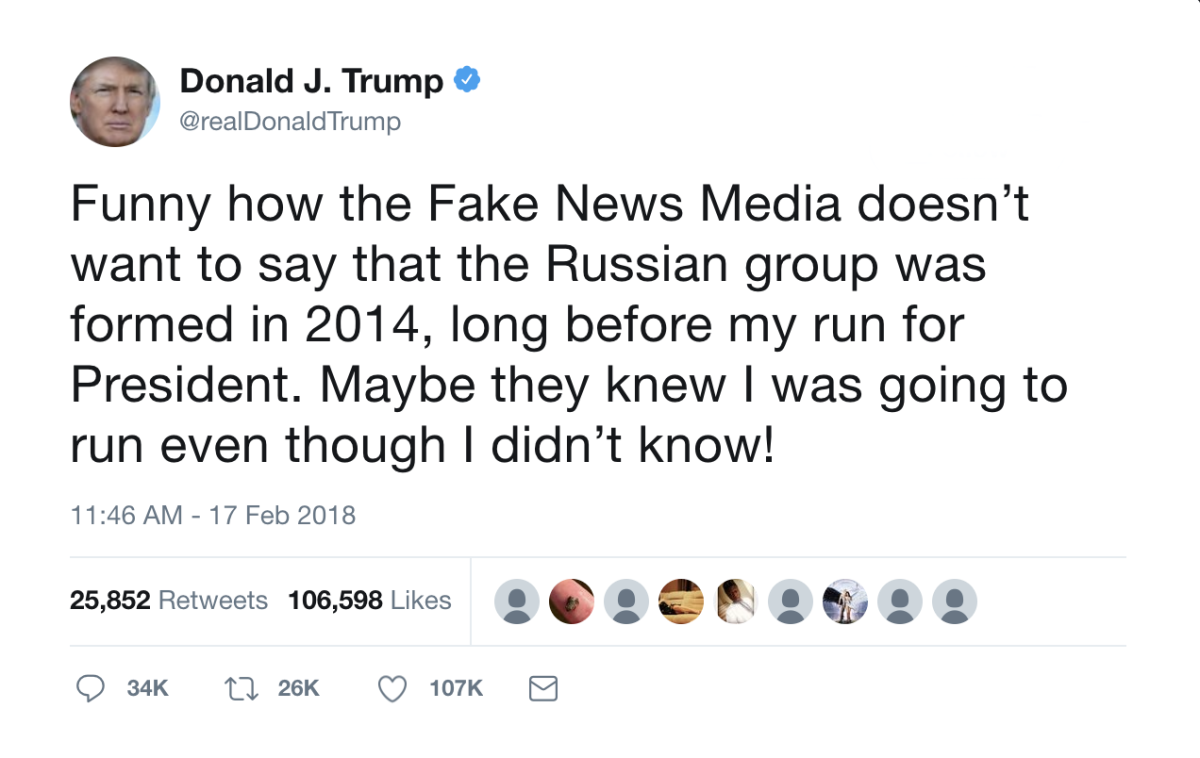
_Maddie Niblett is a freshman journalism major at MU. She is an opinions columnist who writes about politics for The Maneater._
On Feb. 16, Robert Mueller indicted 13 Russian nationals and one Russian company for influencing Americans since 2014 and attempting to influence the 2016 U.S. presidential election in favor of Donald Trump. At the center of it all is the inconspicuously named Russian company Internet Research Agency designed to spread bias on major social media platforms by trolling people online. In short: Russia’s been screwing with us for years, and they have us right where they want us.
In response, Donald Trump tweeted, “Funny how the Fake News Media doesn’t want to say that the Russian group was formed in 2014, long before my run for President. Maybe they knew I was going to run even though I didn’t know!” As a certified member of the Fake News Media™, I can confidently say this fact does not go overlooked by me.
Slate published a short list of things that were supposed to have been posted by the Russians, or Kremlebots, as they’re known in Russia, and they all seem to have one thing in common: divisiveness. One of the posts was on the page for a group called United Muslims of America and encouraged Muslim women to support Hillary Clinton. Another was an organization that advocated for Texas’ secession from the U.S. and talked about “Killary Rotten Clinton.” Yet another post, by far my favorite, advertised a Buff Bernie Sanders coloring book (which I 100 percent would have ordered).
Given the wide range of political viewpoints that the Russians seem to have supported, it’s safe to assume that their ultimate goal was to gain a following for each, right? This, along with the fact that Russia’s meddling began long before Trump announced his candidacy for president, leads to the conclusion that Russia’s ultimate goal was not necessarily to put Trump in charge but to use the weakness of our polarized two-party system against us.
Russia may not have began its internet crusade with the intention of putting Trump in office, but it saw a golden opportunity to create a political divide and took it. Trump might actually have been right about something when he tweeted “…it was the GOAL of Russia to create discord, disruption and chaos within the US.” Even now, with Mueller’s ongoing investigation, cries of fake news and collusion and witch hunts abound, and the polarization of viewpoints grows stronger with each passing day. Abraham Lincoln had it right: A house divided cannot stand.
The only effective way to put an end to Russia’s influence on our political system is to try to come together somewhere in the middle instead of separating ourselves into two groups: liberal and conservative, Democrat and Republican, pro-Trump and anti-Trump. If we can all learn to get along, to have productive discussions instead of needlessly pointing fingers and playing politics with people and programs that we should be protecting (remember DACA and CHIP?), Russia would cease to have an iron grip on American political thought and we could get on with making America great like we should.